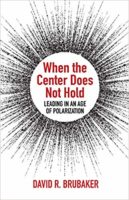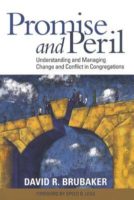
In the last fifty years, not a single minister had survived at First Community Church for more than five. There were many theories as to why. The generally accepted rationale was simply that “First Community chews up its pastors.” Pastor Bethany, who had received plenty of warnings before accepting the lead minister role at First Community, was determined to unearth the reasons for this phenomenon.
Working with an experienced local facilitator, Pastor Bethany planned a “history-boarding session” for a Saturday morning. About 50 members participated, representing a broad spectrum of the congregation. The facilitator posted ten sheets on the wall of the fellowship hall, one for each decade of the congregation’s century-long lifespan. The facilitator then invited participants to share any memories they might have (or have heard about) from that decade of the congregation’s existence.
Laughter and appreciative comments soon filled the hall as the participants recounted memories and stories from the first five of the 10 decades. When they reached the 1960s, however, there was a sudden silence. Someone mentioned that young Pastor John came to the congregation in 1968, but no one offered any memories of his tenure. The facilitator paused and then asked, “Does anyone remember why Pastor John left First Community?”
“We Never Talked About It”
Mabel, a 70-something member of First Community who had joined the congregation 50 years earlier as a college student, was the first to offer a response. “Pastor John was killed by a train as he walked along the tracks after just one year as our pastor,” Mabel whispered. “Some people say it was a freak accident. Others believe that he committed suicide. We never knew. And we never talked about it.”
Fifty years earlier, First Community experienced the loss of a beloved young pastor just one year into his tenure. The congregation responded to that trauma in a manner typical for that era—members never talked about it—and they never forgot. Instead, the memory of the trauma was transferred generationally—passed on from one generation to the next as an unshakable commitment never again to fall in love with a pastor. The result was a series of short-term pastorates.
Trauma in congregations has many causes. Three I have observed most often are sexual misconduct by leaders, high-intensity conflict, and a crisis in the surrounding community (such as a natural or human-caused disaster) that devastates the congregation.
The consequences of a congregational trauma can include apathy, reduced attendance and giving, low morale, and conflict. Perhaps the most pernicious outcome is a loss of trust. The erosion of trust can be both horizontal (among members) and vertical (between members and leaders), and it can persist for generations. A “trauma narrative” need not be verbalized to be transmitted from generation to generation. Children instinctively sense from their parents who can be trusted and who cannot.
When a congregation has experienced a significant trauma, is recovery possible? Yes, but as the story of First Community demonstrates, a congregation cannot change what it will not name. The roots of a trauma story must first be discovered before they can be dislodged.
In addition to uncovering its own trauma history, a congregation can also seek to become trauma-informed and more resilient. According to the Institute for Trauma and Growth, members of a trauma-informed congregation exhibit seven key traits:
- They acknowledge the vast scope of adverse experiences common to individuals.
- They recognize the impact that those experiences have on persons and groups.
- They shift their perspective from “what is wrong with you?” to “what happened to you?”
- They practice self-regulation and offer practices for acknowledging and managing emotions.
- They actively build and sustain relationships.
- They have a sense of purpose and practice meaning-making at an individual and group level.
- They recognize the reality of secondary trauma and encourage the practice of self-care.
While a trauma-informed congregation seeks to understand trauma and its impact, a resilient congregation adapts to a changing environment and incorporates practices that enable it to rebound when trauma occurs. According to the American Psychological Association, “Resilience is the process of adapting well in the face of adversity, trauma, tragedy, threats or even significant sources of stress—such as family and relationship problems, serious health problems or workplace and financial stressors. It means ‘bouncing back’ from difficult experiences.”
Can We Recover?
Can a congregation, like an individual, truly “bounce back” when it suffers a significant trauma? I have accompanied a number of congregations through such processes, and have noted three persistent traits of resilient congregations:
- The leadership of the congregation, both lay and ordained, commits to transparency and solidarity throughout the recovery process (they stick together).
- The congregation’s rituals and sacred stories become key resources for both naming losses and receiving grace and strength.
- Relationships among members—and between members and leaders—are nurtured, with particular attention to trust-building.
Transparency, solidarity, rituals, stories, and relationships are essential for a congregation to bounce back after a traumatic episode. Many congregations include persons experienced in helping individuals and families heal from trauma, and who can be helpful in a time of congregational trauma. Nevertheless, consultants or counselors from outside the congregation are often necessary when helpers in the congregation are impacted by the traumatic event themselves.
Information and Resources on Trauma-Informed and Resilient Congregations:
- ACEs offers resources on integrating insights from “Adverse Childhood Experiences” (ACE) concepts into faith communities.
- Eastern Mennonite University offers “Strategies for Trauma Awareness and Resilience” (STAR) trainings throughout the year.
- The Institute for Collective Trauma and Growth (ICTG) offers helpful guidelines for dealing with trauma in congregations.
- Members of the Congregational Consulting Group offer online and onsite assistance dealing with trauma and other congregational issues.
David Brubaker has consulted with organizations and congregations in the U.S. and a dozen other countries on organizational development and conflict transformation. He is the author of Promise and Peril, on managing change and conflict in congregations, and When the Center Does Not Hold, on leading in an age of polarization. David recently retired from his role as Dean of the School of Social Sciences and Professions at Eastern Mennonite University, and is now a Professor Emeritus of Organizational Studies.


